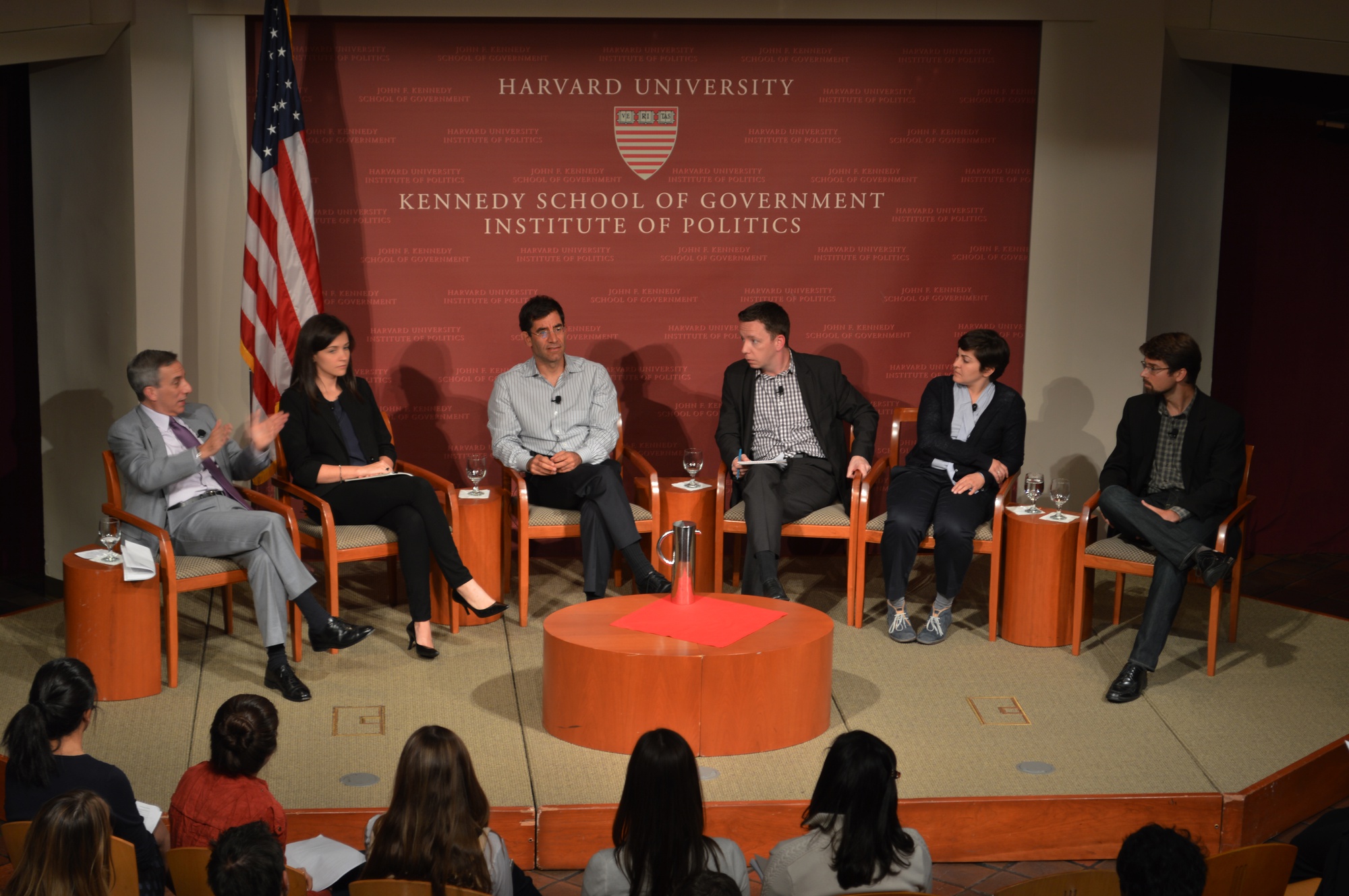
News
Cambridge Residents Slam Council Proposal to Delay Bike Lane Construction

News
‘Gender-Affirming Slay Fest’: Harvard College QSA Hosts Annual Queer Prom

News
‘Not Being Nerds’: Harvard Students Dance to Tinashe at Yardfest

News
Wrongful Death Trial Against CAMHS Employee Over 2015 Student Suicide To Begin Tuesday

News
Cornel West, Harvard Affiliates Call for University to Divest from ‘Israeli Apartheid’ at Rally
Journalists Discuss Quinn's Mayoral Loss

The New York Times journalists behind the documentary “Hers to Lose: Inside Christine Quinn’s Bid for Mayor” joined the campaign strategists featured in the film to discuss the making of the documentary at the Institute of Politics Tuesday night.
Quinn, a Speaker of the New York City Council, was an early favorite to replace New York City Mayor Michael R. Bloomberg, but was ultimately defeated in the Democratic primary by New York City Public Advocate Bill de Blasio. The film is the second installment in the “Times Documentary” series.
In an interview with The Crimson before the event, Richard L. Berke, a senior editor and director of video content for the Times, discussed the complicated relationship between the filmmakers and the campaign staff.
“We’re kind of natural adversaries, the press and the campaign,” said Berke, who also moderated the panel. “But I think we trusted them that they would give us the access we wanted and they trusted us that we weren’t going to do a hit job and that we were going to be fair in our approach.”
Throughout the event, the panelists addressed the challenges Quinn faced in her campaign, including her possible election as the city’s first female and first openly gay mayor.
“Most people do not vote for a candidate because they are a woman or because they are gay,” Josh Isay, a strategist for Quinn’s campaign, said. “It can certainly be a factor in it, but it is not the determining factor.”
Another issue the panelists faced was Quinn’s support for extending the mayoral term limits from two four-year-long terms to three.
Mike Morey, the Quinn campaign’s communications director, said the campaign team knew that term limits were an issue on which many people would base their votes, but added that Quinn “is not someone who runs away from the decisions that she makes”.
Morey and the other panelists said they believed the documentary showed a more “human” side to campaigning.
“I think the service that’s presented here is presenting a side of these candidates—the human side—that never gets covered because our political coverage has moved into such a horse-race mentality that all we do is look at the battle, the war, the polls that are up, the polls that are down, and we don’t do a lot of focus on the individuals who sacrifice a lot to do this,” Morey said.
Students who attended the panel discussion echoed similar sentiments.
Rebecca A. Gonzalez-Rivas ’16, a student who said she was involved in the IOP, agreed, noting that the event “did an excellent job of showing the humanity side of politics and the person behind the campaign.”
Joanne Dynak ’16, another student at the event, said that “voters and communities alike would really benefit from having more documentaries like this in the future and combining that with their understanding of political issues to become more educated voters.”
This article has been revised to reflect the following correction:
CORRECTION: Oct. 14, 2013
An earlier version of this article incorrectly stated Richard L. Berke’s position at the New York Times. In fact, Berke is senior editor and director of video content, not an assistant managing editor.
Want to keep up with breaking news? Subscribe to our email newsletter.
